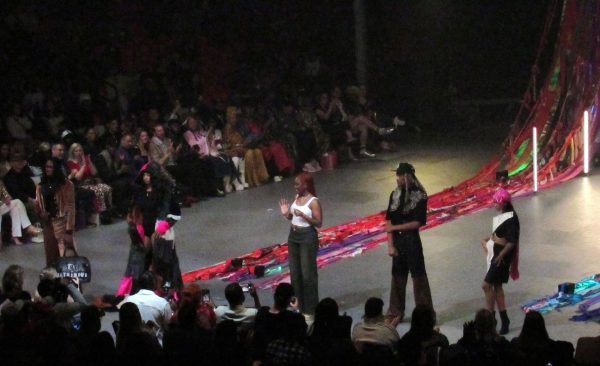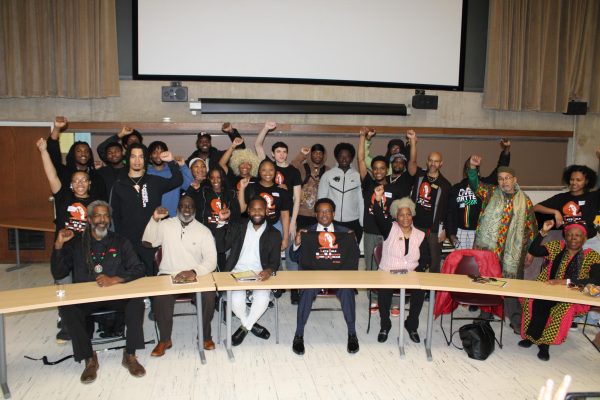Twitter troubles, Facebook faux pas can affect job ops
Embarrassed by your social media presence? Experts suggest you fix the problem sooner rather than later
The Internet would be much safer if every user followed the line, “If you can’t show your grandma, don’t post it.”
On social media sites, every little thing we do is a representation of who we are and says a lot about our character. As college students, graduation is not far off. The real world is knocking at our doors and it’s going to be time to trade in the baggy hoodie for a suit and apply for jobs. Hiring managers aren’t going to want to hire people who post inappropriate things. Bottom line, what you say on social media is crucial and affects your professional life more than you may be aware.
“People don’t understand the professional themselves and they don’t understand the personal themselves,” said communications professor Jack Karlis. “And that’s a big, big problem.”
Karlis said social media has become a huge part of the workplace. That’s because it never shuts off – it is a 24/7 thing and it’s the central way we communicate nowadays.
People, especially college students inching their way into the job market, need to understand how to maintain their social media sites while keeping their professional and personal lives separate.
Karlis best explains how you should handle your social media sites from an analogy that University of Maryland visiting professor Heather Davis Atkins uses.
Atkins said Facebook is like a stage. There’s the front stage, which is the professional you and how you present yourself to the world. Then there’s the back stage, where your friends and family know the personal you and your secrets.
Social media offers the side stage where parts of your personality do come out, but it’s also the professional you. Atkins said you should keep one of your Facebook accounts close to the front stage, and one close to the back stage. Karlis added that you should do this with all of your social media sites.
In terms of which social media sites are good for the working world, Karlis said having a LinkedIn account is absolutely essential.
“If you are a college senior and you don’t have a LinkedIn account, you are well behind the game at this point,” Karlis said.
LinkedIn is a business oriented social networking service. It’s the world’s largest professional network and has over 250 million members.
“I like to call it ‘Facebook for Adults,’” Karlis said. “That’s where things get done.”
Karlis is also a big advocate of Twitter. He said that Twitter has found a place in this world and that students need to be aware that potential job employers are going to look at things like your Twitter account. They can tell from certain things who you are as a person. For example, whom you follow says a lot of about you, as does who follows you. Karlis added that when you retweet someone, you’re basically endorsing them.
Karlis has his own measuring tool to determine when and when not to post certain things on these social media sites.
“If you’re in a grocery store, and there is an elderly couple, in front or behind you, or small children, and you wouldn’t show them a picture or you wouldn’t say it out loud to them or in ear shot, you sure as heck shouldn’t post it on Facebook,” Karlis said.
The point he made is that people need to use better judgment when it comes to posting on social media. There’s a place where you should know to draw the line.
“Maybe you have a beer in your hand (in a picture), not too bad,” Karlis said. “But say you’re doing a keg stand, your pupils are dilated, you’re approaching a state of semi-consciousness. It’s probably not the most appropriate thing.”
He explained that people often try to change their names on Facebook to the first name and middle name as the last name for when job employers search their pages on Google. But what people don’t realize is anyone can find you based on your email address – so make sure yours is professional.
“An email like ‘Mylilbrony52’ is probably not the best one to use,” Karlis said.
While you’re out interviewing for jobs, that’s not the only time to watch what you post.
Lynn Rogers works in the Career Development Center on campus. She said she has personally never known a student who has gotten in trouble with social media at their job, but there are millions of stories out there about how what you post on social media can affect your job status.
“You don’t want to post anything negative ever about your employer,” Rogers said.
She gave an example about an article she read where a guy who worked for a company tweeted a video of him talking about how he didn’t like the new uniforms and got fired because of it.
Rogers also mentioned that being aware of your privacy settings on social media sites such as Facebook is helpful as well.
“I have it so only that friends of friends can search me,” Rogers said. “It doesn’t mean they can’t find me, but it’s another way to control it.”
Kara Valentine, a grad student who works for the Career Development Center as well, said that when it comes to what to post versus what not to post, no one is forcing you to do anything.
“You have to determine that for yourself and deal with the consequences,” Valentine said.
She said if you are that worried about posting certain things because your boss wouldn’t approve, then you either shouldn’t post anything or maybe you need to get a new job.
Ultimately, you need to keep your social media sites as under control and appropriate as possible. But the thing about the Internet is, once it’s out there, it’s out there.
“You have to clean up what you have now,” Karlis said. “But that stuff obviously never goes away.”
Email: [email protected]






